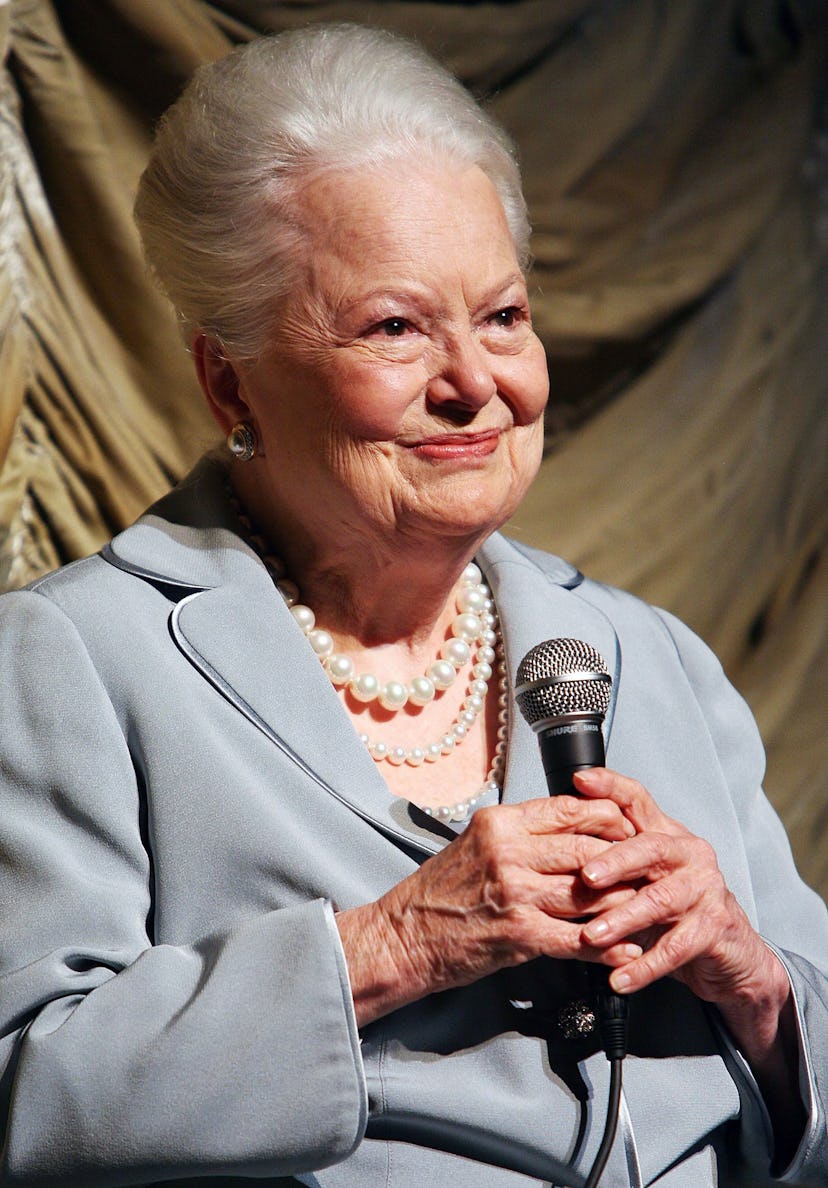Olivia de Havilland Is Trying to Take Her Feud: Bette and Joan Lawsuit to the Supreme Court
She's trying to take her defamation lawsuit against Ryan Murphy's show to the Supreme Court.

At 102 years old, Olivia de Havilland has no plans to back down from a fight. In fact, in the case of her ongoing defamation lawsuit against FX for what she claims was her unauthorized portrayal in Ryan Murphy‘s Feud: Bette and Joan, de Havilland is prepared to take the suit as far as it can possibly go.
According to The Los Angeles Times, after being turned down by a California appeals court and the state Supreme Court, the centenarian is now petitioning the U.S. Supreme Court to hear her case. “It is essential not to give up in any struggle one undertakes,” de Havilland told the Times. “It is only natural for me to take on these institutions because they are in error.” (FX has reportedly asked the Supreme Court to pass on the case.) She added that she felt “mystification and indignation” over her portrayal in the show. “I was furious. I certainly expected that I would be consulted about the text. I never imagined that anyone would misrepresent me,” she said.
In the lawsuit, filed in June 2017, shortly before her 101st birthday, de Havilland alleges that not only did FX and Murphy neglect to ask for her permission to include her likeness in Feud: Bette and Joan, but also that that likeness, portrayed by Catherine Zeta-Jones, was inaccurate and defamatory. “I would have engaged a lawyer and have insisted that the two of us be consulted about any text which involved me,” she told the Times. “If the actress who portrayed me had asked to meet with me, I would have agreed to do so, under proper conditions.”
Per the Times, de Havilland’s complaint focuses on three of Zeta-Jones’s scenes. In two of them, Zeta-Jones’s de Havilland refers to her younger sister, Joan Fontaine, as a “bitch,” a word the real de Havilland claims she never used regarding her sister—though she did admit to calling Fontaine a “dragon lady.” While de Havilland maintains that the two terms differ in tone and meaning, the appeals court did not agree, reportedly ruling that the show’s usage of the word “bitch” is “not highly offensive to a reasonable person and [is], in addition, substantially truthful characterizations of her actual words.” The third scene in dispute shows Zeta-Jones, as de Havilland, talking to Bette Davis (played by Susan Sarandon) about Frank Sinatra’s alcohol consumption. According to de Havilland, the scene makes her look like a “vulgar gossip” and a “hypocrite,” assessments with which the appeals court again disagreed.
Though most past defamation lawsuits in Hollywood have been won by the filmmakers, de Havilland does have the advantage of experience. In 1943, at the age of 27, she put her career on the line to sue Warner Bros. over her prohibitive contract. Though she was subsequently blacklisted by the studio, she won her case, which spawned the de Havilland Law, placing limits on restrictive labor contracts. More than 75 years after that landmark filing, de Havilland may be on the verge of another.
Related: 7 Infamous On-Set Hollywood Feuds